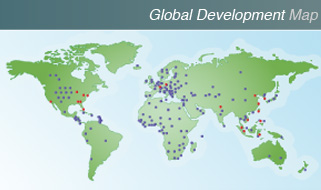-
18 Years Ago Today
Posted: January 21, 2010
“The Road goes ever on and on…”
JRR Tolkien
Eighteen years ago, this night, January 20th, I sat in a chair in Children’s Hospital in Washington DC and watched my son, then 4, in the bed, wires protruding from every directions in and out of him, his breathing barely perceptible. He was having a very difficult recovery from an 18 hour brain surgery several weeks before to remove a grapefruit size brain tumor. He did recover, and we know how blessed we have been because of that. The date sticks in my mind because it is my wife’s birthday.
I sit tonight, exactly eighteen years later looking at him again, in a hospital bed, with wires protruding in and out of him, his breathing barely perceptible, as he readies for more surgery tomorrow; this time to deal with an infected shunt which does the work of something not working quite right on its own to shuttle the fluids in his brain through the ventricles and out again. It will be his second surgery in ten days, following two similar surgeries in late August. If you are reading this blog, then you also know that Neuralstem announced this morning that we transplanted our first ALS patient in the trial at Emory. The two events are not unrelated for me.
For me at least, it was Matt’s illness which resulted in my meeting Dr. Karl Johe, the inventor of our neural stem cell technology; a friendship which resulted in the founding of Neuralstem to push forward his discovery. A discovery which has now resulted in the world’s first intra spinal cell therapy, and the first neural stem cell transplant to treat ALS.
This is of course only the beginning. This patient, this trial in fact, and it is no time for a victory lap or anything like it. But the symmetry of the two events seems almost to demand some reflection on the long hard road to here and now, and what this “beginning” really means. Trials are about results; there are no moral victories for patients waiting for help. This is not a science project, this is a serious effort to treat a terrible disease. But the clinical trial process is just that, a process. The first trial is designed to prove that the cells are safe, and that the route of administration, that is the intraspinal injection method, is also safe. This also means that there is a “dosing” component to the trial, and some patients will get different numbers of injections and therefore cells. There is no “control” or placebo group in this trial, so we have only real ALS patients getting the real therapy. And while all the primary end points of the trial are safety related, we are also going to be measuring many functional abilities of the patients to get a feel for whether or not we are slowing down the progression of the disease. We will not be commenting on the progress of patients during the trial, so this will be about all I will be saying concerning the trial until we have data that we can release. I wish the process and the rules were otherwise.
No one should doubt however, the importance of the safety data. This platform, these spinal cord cells and the intraspinal injection method we have developed as sponsors of this trial, will be the platform that we hope to use to treat spinal cord injury, and stroke patients, and MS patients and a host of other currently untreatable diseases and conditions of the central nervous system. Diseases which touch almost all of us in one way or another. This is because “inside” the spinal cord is where the cells need to be to help. And the safety data we create for the cells and the surgery in this trial will help make all those other trials possible.
We believe that we can help ALS patients with this therapy. And that is the main point of this trial, to bring a therapy to patients for this horrible disease. But no matter how encouraging animal trial results are, until you help human patients you simply don’t know what impact you are going to have. And so we have to be immensely grateful to those patients and their families who agree to participate in our trial. And as the importance of this trial goes far beyond ALS and ALS patients, we should all be grateful for their courage and generosity. For none of us knows where our roads will lead us or our loved ones.






